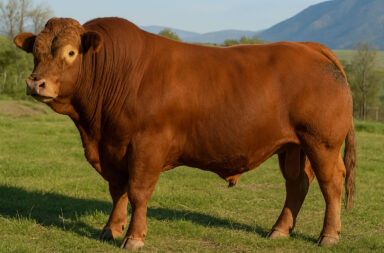Livestock and Climate Change: How Farming Contributes & Mitigates Emissions.
When we think about climate change, cars and factories usually come to mind. But did you know that livestock farming also plays a big role? From cow burps to manure management, agriculture contributes to greenhouse gas emissions—but it can also be part of the solution. Let’s break it down.
How Livestock Farming Contributes to Emissions
Cows, sheep, and goats produce methane, a potent greenhouse gas, during digestion (yes, mostly from burps, not farts!). Methane traps heat much more effectively than CO₂, making it a major climate concern.
Other emissions come from:
Manure management – Decomposing waste releases methane and nitrous oxide.
Deforestation – Clearing land for pastures or feed crops reduces carbon-absorbing forests.
Feed production – Growing soy and corn for animal feed requires energy, fertilizers, and transportation, adding to the carbon footprint.
According to the UN, livestock accounts for about 14.5% of global greenhouse gas emissions. That’s more than all the world’s cars, planes, and ships combined!
Can Farming Actually Help Reduce Emissions?
The good news? Farmers and researchers are finding ways to make livestock farming more sustainable. Here’s how:
- Better Feed = Fewer Burps
Adding seaweed or certain supplements to cow feed can reduce methane production by up to 30%. Scientists are also breeding low-methane cattle—yes, that’s a thing!
- Smarter Manure Handling
Instead of letting manure decompose in open pits, farmers can use:
Biogas digesters – Turn waste into renewable energy.
Composting – Lowers methane emissions and creates natural fertilizer.
- Grazing Practices That Capture Carbon
Rotational grazing (moving livestock between pastures) helps soil absorb more carbon. Healthy soils act like a giant carbon sponge, offsetting some emissions.
- Reducing Food Waste
About one-third of all food produced goes to waste. By improving supply chains and eating what we produce, we can lower the demand for extra livestock farming.
What Can You Do?
You don’t have to go full vegan to make a difference. Small changes help:
- Eat less but better meat – Choose grass-fed or locally sourced options.
- Support sustainable farms – Look for certifications like organic or regenerative agriculture.
- Reduce food waste – Plan meals, store food properly, and compost scraps.
The Bottom Line
Livestock farming is a big emitter, but it’s also evolving. With smarter practices, farmers can reduce their climate impact—and even help fight global warming. The future of food doesn’t have to be meatless, just more mindful.
What do you think? Would you try methane-reduced beef or switch to more plant-based meals? Let’s chat in the comments!


